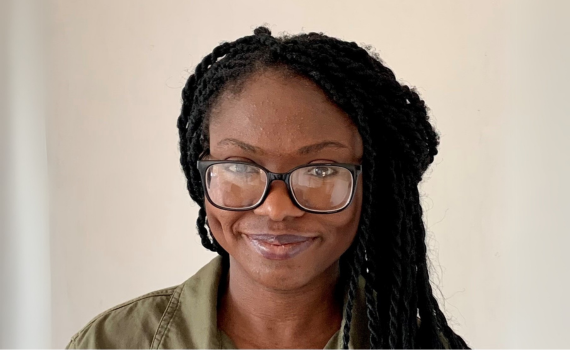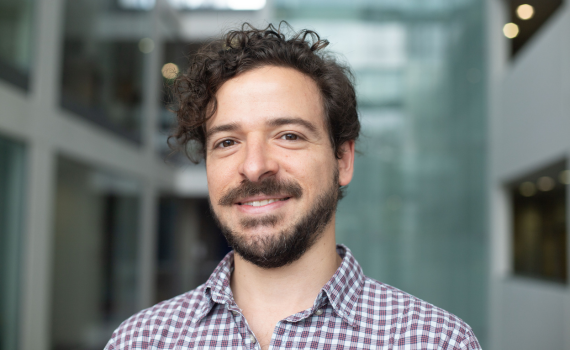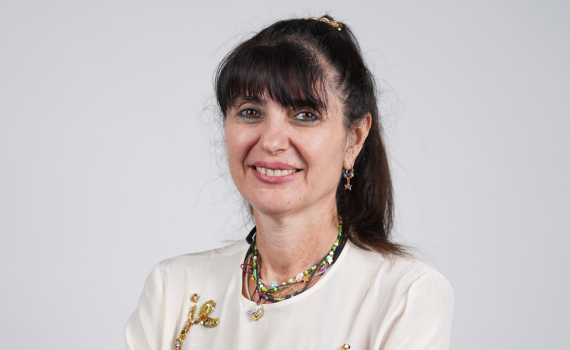Online, part-time
Global Political Economy MAMake a real difference to connections and collaborations in finance, industry, and commerce across the world.
Key information
|
Study mode: |
100% online |
|
Duration: |
2 years, part time |
|
Next start date: |
29 September 2025 |
|
Application deadline: |
1 September 2025 |
|
Intakes: |
September 2025 and January 2026 |
|
Tuition fees: |
£19,422* (funding options and instalments are available) |
These tuition fees may be subject to increases in subsequent years of study, in line with King's terms and conditions.
* Depending on your country of residence, you may also have to pay Goods and Services Tax (GST) in addition to your tuition fees. You can find further information on the King's Goods and Services tax page.
Course overview
This Global Political Economy MA is an interdisciplinary online programme that explores the interactions of political, economic, and social forces in a global context, and how they are transforming our world. Such forces include individual states and international organisations like the International Monetary Fund and World Bank.
It also extends to transnational social movements, such as the global climate movement and mass mobilisations against authoritarian rulers.
You’ll consider and come to appreciate the extent to which the global political economy impacts and transforms our everyday world. Its consequences include, for example, economic, financial, and environmental crises, conflict poverty, inequality, and gender relations.
Apply nowGlobal Political Economy MA scholarships
Five scholarships, worth £5,000 per student across January 2026 intake, are available as a partial contribution towards tuition fees. The deadline for submissions is 15 October 2025. Please see the main King’s website for full details of eligibility criteria and the application process.
Why choose this online MA?
Join a leading university
King’s ranked fifth in Europe for politics and international relations (2023 QS World University Rankings). And placed first for research power (Times Higher Education 2021 Research Excellence Framework).
Develop in-depth knowledge
Acquire advanced understanding of major interests, institutions, and ideas that shape the global political economy and the interaction between politics and economics internationally.
Career development
Develop the global perspective and knowledge of international political economy to work in international development, policy, or research in the public, private, and not-for-profit sectors across the world.
World-leading academics
Our staff produces world-leading research on key aspects of the global political economy that informs public debates through engagements with policymakers and politicians worldwide.
What you'll study
This Global Political Economy MA is designed to convey an in-depth understanding of how transformations in the global political economy affect different states, regions, and sectors.
Using a social science framework and referencing our own world-leading insight, you will learn to analyse key issues and challenges in the global political economy. In doing so, you will develop an awareness of the challenges, trade-offs, and uncertainties concerning decision-making in the global political economy.
Hear from the Programme Director
Dr Roberto Roccu outlines the programme's core modules, including global political theories, research methods, and specialised topics like international migration. Learn how this flexible, online MA equips you with critical thinking and research skills for careers in international organisations, government, and beyond.
Hello, I'm Dr. Roberto Roccu, Reader in International Political Economy in the Department of European and International Studies, as well as Programme Director for the MA Global Political Economy at King's College London. Our MA in Global Political Economy is an innovative interdisciplinary programme that explores the complex interactions between political, economic, and social forces on a global scale and how they are transforming our world. Delivered entirely online, this part-time course is perfect for working professionals and those looking to study alongside their other commitments.
In your first year, you'll delve into the core of our curriculum with modules such as Global Political Theories and Approaches and Issues in Global Political Economy.
These modules will provide you with a strong theoretical foundation and a deep understanding of the pressing issues that shape the world economy today.
In your second year, you'll advance your research skills with our Research Design and Methods module. This will prepare you for the rigorous academic research required for your dissertation, where you will have the opportunity to explore a topic of your own choosing in-depth.
We also offer specialised modules such as the Colonising Global Political Economy and the Political Economy of International Migration. These modules will not only broaden your understanding but also challenge conventional perspectives, providing you with a comprehensive and critical outlook on global political and economic issues.
Throughout the programme, you will engage in discussions on a wide array of critical topics. You'll explore the impact of globalisation, delve into the intricacies of international trade and finance, and examine the challenges of international cooperation on global environmental issues.
Other key topics include the political economy of development, the role of international institutions like the IMF and the World Bank, the socio-economic implications of global migration, and more.
These discussions will not only enhance your understanding, but also enable you to apply theoretical knowledge to real-world issues, fostering a well-rounded and practical perspective on the global political economy.
What sets our programme apart is our commitment to providing a truly global perspective, enriched by our world-class faculty and diverse student body.
You'll gain highly sought-after skills such as critical thinking, analytical reasoning, and advanced research capabilities.
These are essential for careers in international organisations, government bodies, NGOs, and the private sector.
As a graduate of the MA Global Political Economy, you'll be well prepared to navigate and influence the complex landscape of global politics and economics.
Join us at King's College London and take the next step towards a rewarding and impactful career.
Who is this course for?
- Global affairs and private sector professionals: Develop your understanding of economic policy in a global context for roles across governments, NGOs, international organisations, and the corporate sector
- Policy analysts and researchers: Gain tools to assess trade, finance, and economic governance
- Career changers and progressors: Move into global finance, trade, or development policy with confidence
- Global justice advocates: Examine how economic forces shape inequality, climate, and governance
Module overview
You’re required to take six modules, totalling 180 credits. King’s College London reviews the modules offered on a regular basis to provide up-to-date, innovative and relevant programmes of study. Therefore, modules on offer may change from year to year.
Following the long tail of the global financial and economic crisis of 2007-2008, globalisation is increasingly targeted as part of the problem by supposedly anti-established figures of all political stripes. This resulting backlash has, according to many observers, resulted in de-globalisation, not only with respect to patterns in trade and investment, but also in policy terms, with a return to protectionist measures, including in the form of trade wars.
Against this backdrop, this module focuses particularly on different approaches and theories for understanding the global political economy. It will equip you with key analytical tools to make sense of contemporary transformations, which will be explored in the follow-up module connected to this one, Issues in Global Political Economy.
More specifically, the module is organised in three parts. Firstly, it focuses on approaches that precede the emergence of a global political economy, but still provide tools and insights relevant for its functioning today. Secondly, it zooms in on dominant approaches from International Political Economy (IPE), the field most directly concerned with the global political economy.
Finally, the module will also help you assess the value of heterodox and critical approaches to the study of the global political economy, including most notably Marxist, neo-Gramscian, and feminist scholarship.
This module is the follow-up to Global Political Economy: Theories & Approaches. It centres globalisation as a material process that has fundamentally reshaped the international political economy that emerged after World War Two into the global system we live in today.
The module is organised in three main parts. The first focuses on financial globalisation, with a particular emphasis on the consequence of the collapse of the Bretton Woods exchange rate arrangement and on the global financial crisis of 2007-8 and its long aftermath.
The second part instead focuses on the globalisation of production, looking at how transformations in the international trade regime have facilitated the emergence and spread of global value chains.
The final part of the module examines global challenges that might not immediately seem related to the global political economy but are in fact deeply affected by it. They range from the climate crisis to the implications of international migration to the prospects of addressing poverty and inequality.
Who gets to 'know' the global economy and who are deemed its objects for improvement? This module seeks to broaden the study of power in the global economy that accounts for the legacies of imperialism and colonialism that historically foreclosed non-Western ways of knowing.
It'll equip you with tools to analytically engage with the current global order: one marked by geopolitical instability, political upheaval, economic uncertainty, and the existential threats posed by climate change and pandemics.
To achieve this, you're introduced to key literatures developed by political economists of the Global South: scholars of the black radical tradition, intersectional feminists, indigenous, ecological and other related critics.
Throughout the module, we aim to expand and complicate the understanding of European development as a global actor and institutional model. We do this by examining the impacts of empire, slavery, indentureship, and race in order to offer contemporary analysis of production, finance, development, climate change and the sustained racialised and gendered inequalities.
The module will provide you with political economy analyses that foster more global conversations, paying greater attention to spaces and communities beyond Europe and North America. This approach invites new decolonial framings to address the challenges of the contemporary global economy and explores how these neo-imperial logics are confronted and resisted.
This module offers novel answers to the big questions of migration and dismantles its main myths. Who are the migrants? Do border controls increase security? Do migrants steal our jobs? Can we help migrants at their home? Are open borders desirable? These are just some of the issues addressed by Professor Leila Simona Talani, drawing on her extensive research on migration.
Starting from the assessment of the impact of globalisation on international migration, the module asserts, on the basis of extensive empirical research, that it’s virtually impossible to stop contemporary migratory flows from the global South to the global North.
As a consequence, policies designed to control, limit or deter migration at the border only result in the transformation of part or all regular migrants into irregular ones.
This, in turn, leads to an overall increase of insecurity for both citizens and migrants. This is as a result of the involvement of organised crime in the smuggling and trafficking of human beings, the employment of migrants in the underground (or illegal) economy of receiving countries, the enhanced incentives for migrants to adopt deviant behaviours, and their increased criminalisation by the local population and institutions. These issues will all be analysed and assessed in this module.
This module provides you with the foundations you’ll need to conduct high-quality independent research in the social sciences generally, and more specifically when investigating topics pertaining to the global political economy.
The content is designed to guide you through three stages of research: (i) design and planning; (ii) data collection; (iii) data analysis. You’ll also be expected to collaborate with other students, including, for instance, by providing peer-feedback on respective research ideas and working together to develop a prospective research project’s design.
This module provides you with the opportunity to reflect systematically on the independent research on a topic of your own choosing required for completing your final dissertation.
The dissertation represents your main opportunity to undertake a distinctive, individual piece of in-depth academic research that showcases what you learned during this programme. It can also be shown to potential employers as evidence of your ability to work independently and produce high-quality research.
The module covers the key stages of the dissertation process, including formulating the research question, conducting the literature review, navigating the relationship with your academic supervisor, writing your thesis, and revising and completing your submission.

Hear from a student
“I really enjoyed the first term. The workload was perfectly balanced for someone working full-time and managing other responsibilities. The coursework is incredibly relevant, not only foundationally informing my work but also broadly, considering all that is going on in the world at the moment.”
Online Global Political Economy MA student
Dissertation topics
The dissertation is your opportunity to conduct independent research on a global political economy topic of your choice. It provides an opportunity to engage with complex economic, political, and financial dynamics shaping the global system. Below are example dissertation titles covering key debates in trade, finance, technology, and sustainability.
Global governance and geopolitics
- How does US hegemony (still) shape the functioning of the United Nations?
- How do geopolitical tensions affect deep global value chain integration? A study of the automotive sector in [country-country] relations.
Trade, monetary policy and corporate strategy
- How do trade tariffs affect the corporate strategies of [major tech firm]?
- What effect does the monetary policy of the European Central Bank have on economic outcomes in [EU member state]?
- What are the structural underpinnings of [country]’s recurrent financial crises? An international financial subordination approach.
Technology and digital economy
- What role does labour exploitation take under ‘digital capitalism’? A case study of [tech firm].
- How does the governance of artificial intelligence affect disinformation systems?
Environmental and sustainable development
- How does participation in global value chains affect the environmental performance of firms in [country]?
- How has the Blue Economy Agenda affected the economic trajectory of small island states in the Pacific?
How you're assessed
Modules will be assessed through a variety of assessment types. This will predominantly include:
Coursework essays
Coursework essays
Online quizzes and activities
Online quizzes and activities
Individual and group presentations
Individual and group presentations
Written and oral assessments
Written and oral assessments
As already mentioned, some parts of the programme will include group-based assessment (formative and summative), alongside the mainstay of individual assessment.
Entry requirements
A minimum 2:1 honours degree (or above) in a social science or humanities subject.
If you have a lower degree classification, or a degree in an unrelated subject, your application may be considered if you can demonstrate significant relevant work experience, or offer a related graduate qualification (such as a master's or PGDip).
Please note that if you have a lower degree classification, or a degree in an unrelated subject, your application may still be considered. You’ll need to demonstrate significant relevant work experience or offer a related graduate qualification (such as a master’s or PGDip).
English language band: B
To study at King's, it is essential that you can communicate in English effectively in an academic environment. You’re usually required to provide certification of your competence in English before starting your studies.
Nationals of majority English speaking countries (as defined by the UKVI) who have permanently resided in this country are not usually required to complete an additional English language test. This is also the case for applicants who have successfully completed:
- An undergraduate degree (at least three years duration) within five years of the course start date.
- A postgraduate taught degree (at least one year) within five years of the course start date.
- A PhD in a majority English-speaking country (as defined by the UKVI) within five years of the course start date.
For information on our English language requirements and whether you need to complete an English language test, please see our English Language requirements page.
Depending on your previous qualifications, you may need to submit a personal statement and a reference letter as part of your application.
You’ll need to submit a copy (or copies) of your official academic transcript(s), showing the subjects studied and marks obtained. If you’ve already completed your degree, copies of your official degree certificate will also be required. Applicants with academic documents issued in a language other than English, will need to submit both the original and official translation of their documents.
You’ll need to submit your CV as part of your application to highlight your experience.
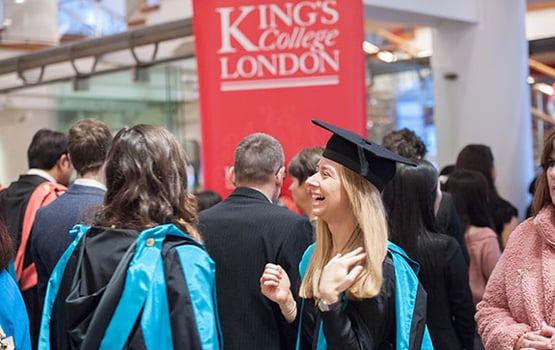
Not sure if you meet the requirements, or if the course is right for you? Speak to our team to get tailored support:
Discuss my optionsCareer options in Global Political Economy
On this MA, you will learn various academic and professional analytical, techniques to assess and evaluate different aspects of the global political economy, including but not limited to trade, finance, energy, natural resource availability and extraction, poverty, inequality, migration, and development.
Typical careers you can expect to pursue include economist, financial analyst, trade specialist, lobbyist, political scientist, policy analyst, business analyst, marketing specialist, researcher, charity advisor, and more.
Graduates of the on-campus version of this course enjoy highly successful careers across the public, private, and third sector. They can be found working in the UK and Europe, as well as in Asia, Africa, and the Americas.
Ready to join us in September 2025?
Discover more

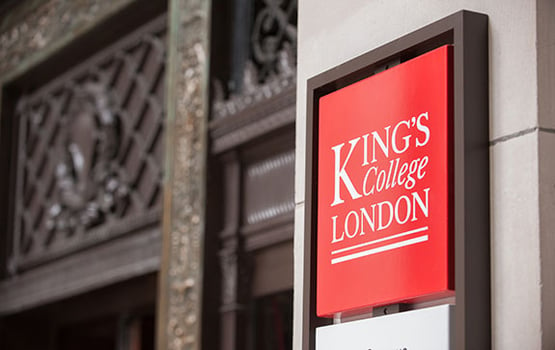

You have the potential. We’ll help you unleash it. Take charge of your future today.
Questions about our courses, studying online or the application process? Our expert Enrolment Advisors are on-hand to help. Simply fill in the form below, and they’ll get in touch with you shortly.
Fields with a '*' are mandatory.

